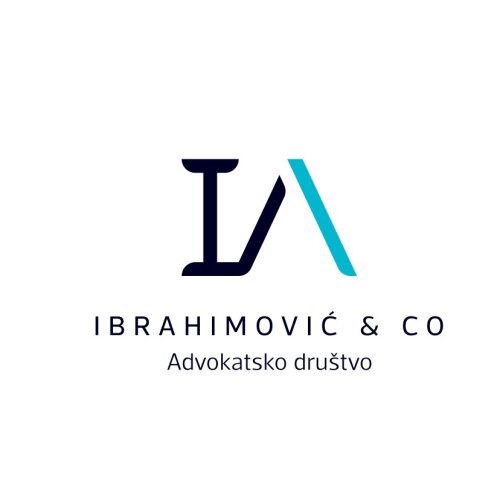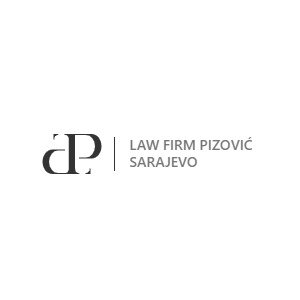Best Debt Capital Markets Lawyers in Sarajevo
Share your needs with us, get contacted by law firms.
Free. Takes 2 min.
List of the best lawyers in Sarajevo, Bosnia and Herzegovina
About Debt Capital Markets Law in Sarajevo, Bosnia and Herzegovina
Debt Capital Markets (DCM) are a crucial aspect of the wider financial system, enabling companies, financial institutions, and governments to raise funds through the issuance of debt securities such as bonds, notes, and other fixed income instruments. In Sarajevo, Bosnia and Herzegovina, the DCM sector has developed in response to the country's economic needs and integration with regional and global markets. Legal frameworks, regulatory oversight, and compliance requirements are established to promote integrity, transparency, and investor protection within these markets.
Why You May Need a Lawyer
Legal guidance is highly recommended in Debt Capital Markets transactions for several key reasons. Firstly, the structuring and execution of bond issues, syndicated loans, and other financial instruments require in-depth knowledge of both local regulations and international best practices. You may also need legal assistance to review and draft documentation, perform due diligence, negotiate terms, or ensure compliance with regulatory authorities. Whether you are an issuer, investor, or financial intermediary, a qualified lawyer helps mitigate risks, resolve potential disputes, and smoothen the process of cross-border financing.
Local Laws Overview
The legal framework governing Debt Capital Markets in Sarajevo and across Bosnia and Herzegovina includes several distinctive features. The primary regulatory body is the Securities Commission of the Federation of Bosnia and Herzegovina, alongside the relevant entity- and state-level institutions. Legislation includes the Law on Securities Market, the Law on Companies, regulations on public offerings and prospectuses, and requirements for listing and trading debt securities on local stock exchanges such as the Sarajevo Stock Exchange (SASE).
Issuer eligibility, disclosure standards, and investor protection rules are strictly enforced. There are also cross-border aspects, particularly for foreign issuers or investors, emphasizing the importance of understanding both local and international compliance obligations. Tax considerations, anti-money laundering provisions, and currency regulations can also play a significant role in structuring transactions.
Frequently Asked Questions
What is a debt security and how is it used in Bosnia and Herzegovina?
A debt security is a financial instrument representing a loan made by an investor to the issuer. In Bosnia and Herzegovina, entities such as governments and companies use debt securities like bonds to raise capital for business ventures or public projects.
Who regulates Debt Capital Markets in Sarajevo?
The Securities Commission of the Federation of Bosnia and Herzegovina is the primary regulator, along with other financial oversight bodies depending on the nature and scope of the issuance.
Can foreign entities issue bonds or debt securities in Sarajevo?
Yes, foreign entities can issue debt securities, but they must comply with local regulations, disclosure requirements, and may need approvals from regulatory bodies.
What are the typical legal requirements for issuing debt securities?
Legal requirements include preparing a prospectus, obtaining regulatory approval, ensuring fair disclosure, and meeting listing requirements if the securities are to be traded on a public exchange.
Are there restrictions on who can invest in debt securities?
Generally, both individual and institutional investors can participate, but some issues may be limited to qualified or professional investors according to regulatory provisions.
How are public offerings of debt securities conducted?
Public offerings require the preparation of a detailed prospectus, regulatory approval, and compliance with marketing, distribution, and trading rules set by authorities and the stock exchange.
What legal risks should be considered in a DCM transaction?
Risks include non-compliance with disclosure obligations, potential misrepresentation, defaults, and legal disputes over terms of issuance or repayment.
How are disputes in Debt Capital Markets resolved?
Disputes may be addressed through negotiation, arbitration, or litigation, depending on the terms of issuance and jurisdictional clauses in the legal documentation.
What role does due diligence play in the DCM process?
Due diligence is essential to verify disclosures, assess issuer creditworthiness, uncover legal or financial risks, and ensure that all regulatory obligations are met.
How can a lawyer assist with cross-border DCM transactions?
A lawyer can help navigate different legal systems, ensure compliance with both local and international laws, and structure transactions to minimize risks and tax liabilities.
Additional Resources
- Securities Commission of the Federation of Bosnia and Herzegovina (Commission for Securities of FBiH) - Sarajevo Stock Exchange (SASE) - Republika Srpska Securities Commission (for cross-entity matters) - Ministry of Finance and Treasury of Bosnia and Herzegovina - Association of Banks of Bosnia and Herzegovina - Local and international law firms with experience in capital markets
Next Steps
If you are considering engaging in Debt Capital Markets activities in Sarajevo or anywhere in Bosnia and Herzegovina, the most effective first step is to consult a lawyer who specializes in capital markets and financial law. Start by documenting your specific objectives and gathering any available information regarding the intended transaction or investment. Next, seek recommendations for reputable law firms or legal advisors with a proven track record in DCM matters. Arrange an initial consultation to discuss your needs, potential legal issues, and compliance requirements. Together with your chosen advisor, develop an action plan that ensures all regulatory, contractual, and practical aspects of your project are fully addressed.
Lawzana helps you find the best lawyers and law firms in Sarajevo through a curated and pre-screened list of qualified legal professionals. Our platform offers rankings and detailed profiles of attorneys and law firms, allowing you to compare based on practice areas, including Debt Capital Markets, experience, and client feedback.
Each profile includes a description of the firm's areas of practice, client reviews, team members and partners, year of establishment, spoken languages, office locations, contact information, social media presence, and any published articles or resources. Most firms on our platform speak English and are experienced in both local and international legal matters.
Get a quote from top-rated law firms in Sarajevo, Bosnia and Herzegovina — quickly, securely, and without unnecessary hassle.
Disclaimer:
The information provided on this page is for general informational purposes only and does not constitute legal advice. While we strive to ensure the accuracy and relevance of the content, legal information may change over time, and interpretations of the law can vary. You should always consult with a qualified legal professional for advice specific to your situation.
We disclaim all liability for actions taken or not taken based on the content of this page. If you believe any information is incorrect or outdated, please contact us, and we will review and update it where appropriate.












